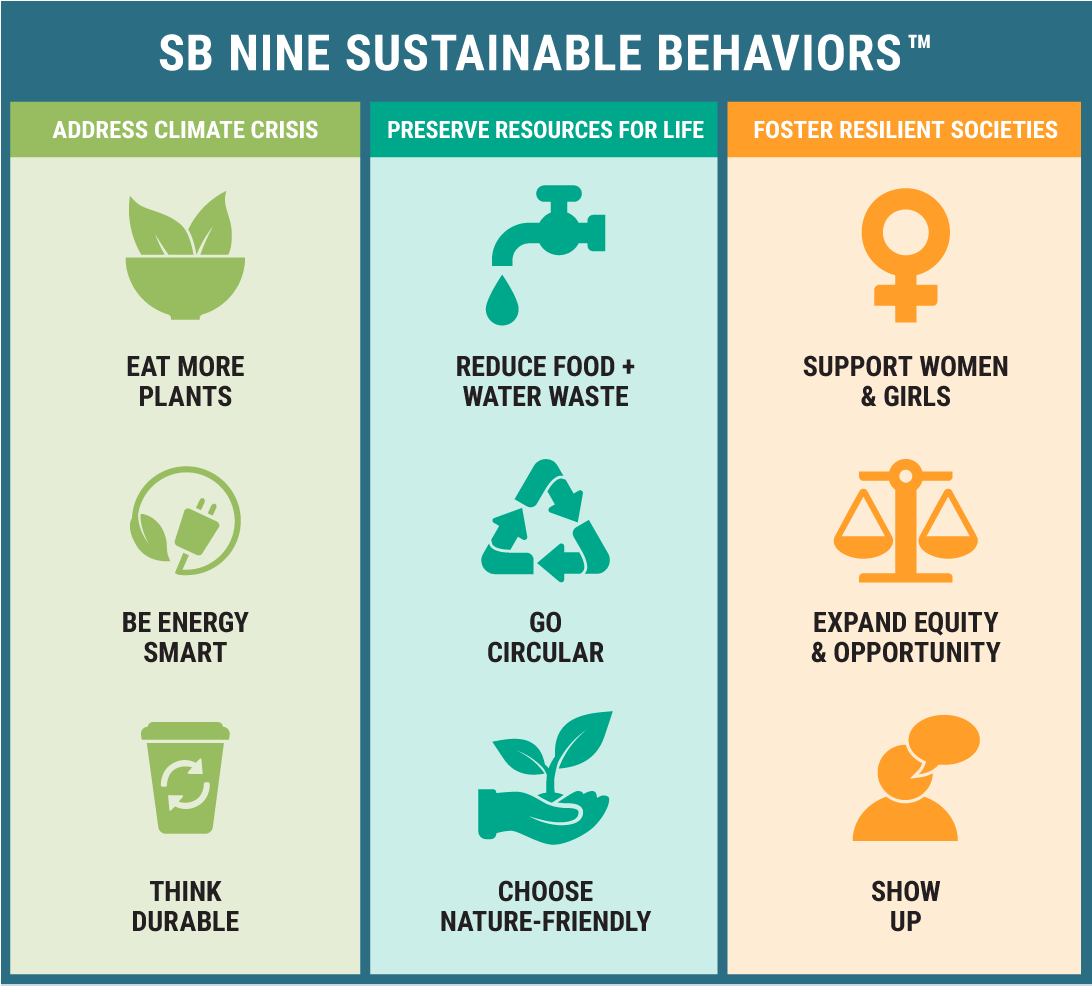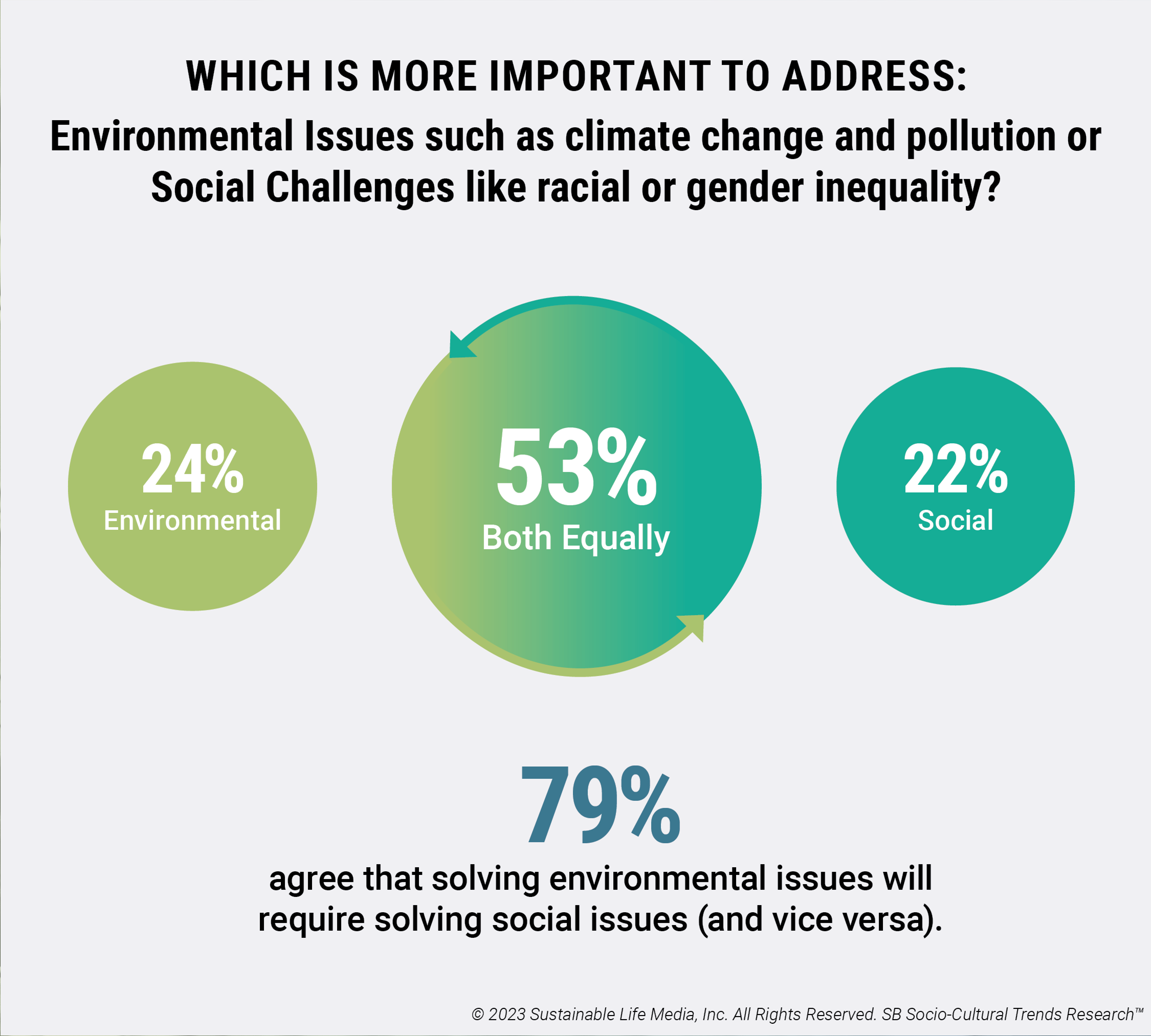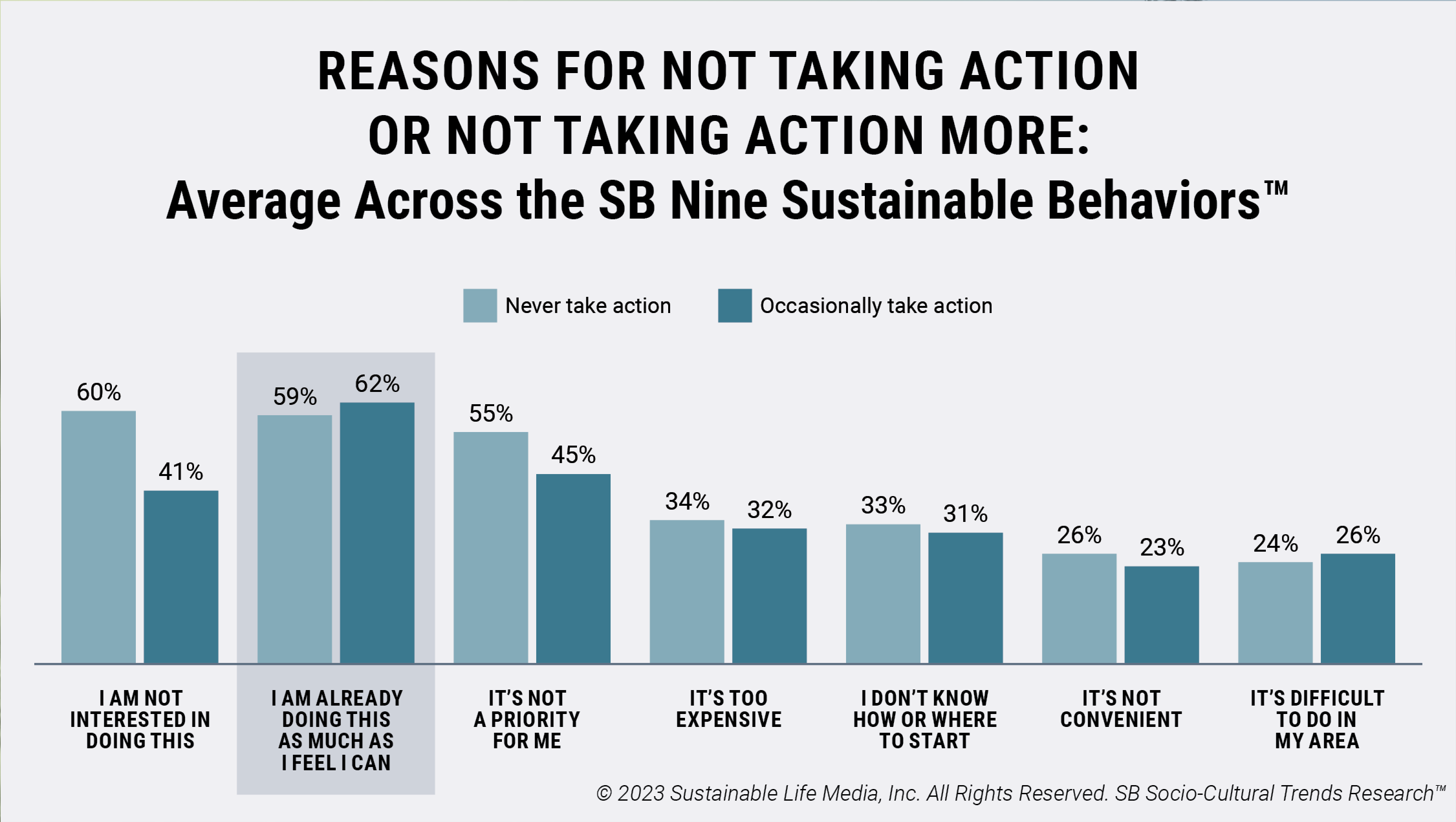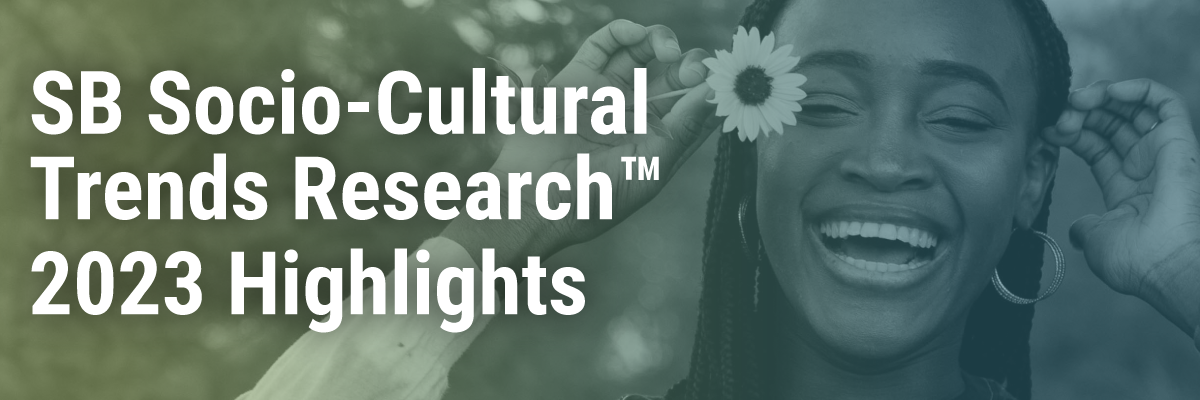Empowering Consumers to Increase Sustainable Living through Innovation that Inspires
In an era where sustainability has become a critical consideration for both consumers and businesses, brands must maintain a keen awareness of their customer attitudes, motivators, and barriers towards sustainability in order to strategically shape and guide their sustainable initiatives.
The SB Socio-Cultural Trends Research™, conducted in partnership with Ipsos, focuses on the changing drivers and behaviors of mainstream consumers at the intersection of brands and sustainable living.
This includes the role of brands driving sustainable behavior change and closing the intention-action gap. This research aligns businesses and their customers through the framework of the SB Nine Sustainable Behaviors™, allowing brands to gain insight on where their customers are currently taking action on sustainability and where facilitation is needed to increase sustainable action through inspiration and education. Understanding mainstream attitudes, preferences, and evolving expectations through consumer research not only allows brands to align their sustainable strategies with market demand but also enables them to develop specific initiatives that resonate with target audiences, build trust, and drive long-term value.

People Are Engaging in Sustainable Behaviors
The 2023 annual study shows that 96% of U.S. citizens say that they try to live in ways that protect the planet, its people, and its resources at least some of the time. This number has remained consistent over the past three years, suggesting that brands don’t need to focus on changing consumer values, or convincing them on why they need to live more sustainably. Rather, consumers need help on taking increased action and improving their understanding on which actions have the greatest impact. People are looking to brands for leadership; 70% believe that companies provide products or services that help them live in a more sustainable way, and 78% say they support companies that act sustainably by purchasing their products or services.
U.S. consumers show an understanding of the intersection between environmental and societal issues; 79% agree that solving environmental issues will require solving social issues, and vice versa. When asked which is more important, about half agreed that both environmental issues and social issues are equally important, with less than one-fourth on either side saying that one is more important than the other. Even though they acknowledge the importance of making socially responsible choices, they are taking action on socially-oriented sustainable behaviors at a lower frequency than the environmentally-focused behaviors. This disconnect between consumers’ values and actions reveals an opportunity for brands to lead their consumers on a much-needed journey to increasing their action on Expanding Equity and Opportunity, Supporting Women and Girls, and Showing Up.

As expected, the data on sustainable living forms the foundation for a nuanced discussion. Sustainable behaviors that are less adopted are the result of a variety of barriers including price, access, understanding, and even cultural barriers. Converting consumers who do not take sustainable action presents a challenge in raising awareness and heightening the importance of these behaviors, as well as making them more easily accessible and attainable. All of these can be influenced through brand-led culture change.
On the other side of the spectrum, looking at the most adopted behaviors, a high majority of people (between 65% - 78%) say they’re acting on specific behaviors most or all of the time. This provides a group of advocates that brands can engage for support and recognition on their current sustainable initiatives. However, about one-third to one-fourth of consumers are only occasionally taking action on sustainable behaviors. When asked why they don’t take more action on these behaviors, the top response was “I am already doing this as much as I feel I can.” This is a group who is open to increasing their level of sustainable living but perhaps not finding the pathways or motivation to prioritize these habits. Brands have a great opportunity within this group to increase frequency and deepen engagement by creating new opportunities to engage through brand initiatives on-shelf and through their media influence.

Download the SB Socio-Cultural Trends Research™ 2023 annual highlights report to see which sustainable behaviors need more support and for which behaviors consumers mainly need new opportunities to engage. This report also shows a breakdown of generational demographics in addition to which behaviors consumers believe have the greatest impact.
Additional Inspiration and Insights
In comparing the most-adopted and less-adopted sustainable behaviors, it is noteworthy that Gen Z respondents take more action on the less-adopted behaviors, and less action on the more-adopted behaviors compared to their older counterparts. This summer, a follow-up study will take place to glean deeper insights into Gen Z’s attitudes and behaviors around sustainability and brands. The results of this study will be shared in a live session when the Sustainable Brands community convenes for SB’23 San Diego - Regenerating Local Oct 16-19, 2023 at the Town & Country Resort.
This annual conference brings together and enables sustainability, brand, and innovation/R&D leaders to drive successful brand transformation that wins in the market by delivering meaningful value in today’s context and ensures readiness for tomorrow. Connect with industry experts, and network with like-minded professionals who are committed to building sustainable and socially responsible brands.
Sustainable Brands® is a registered trademark of Sustainable Life Media, Inc.
